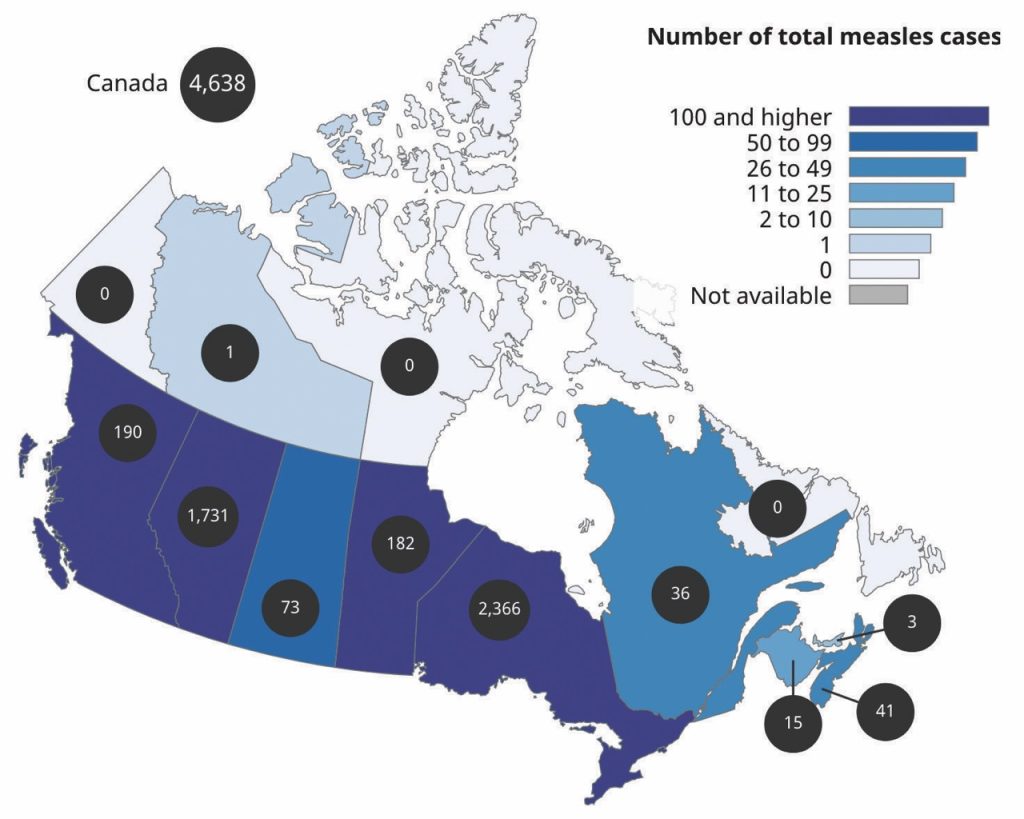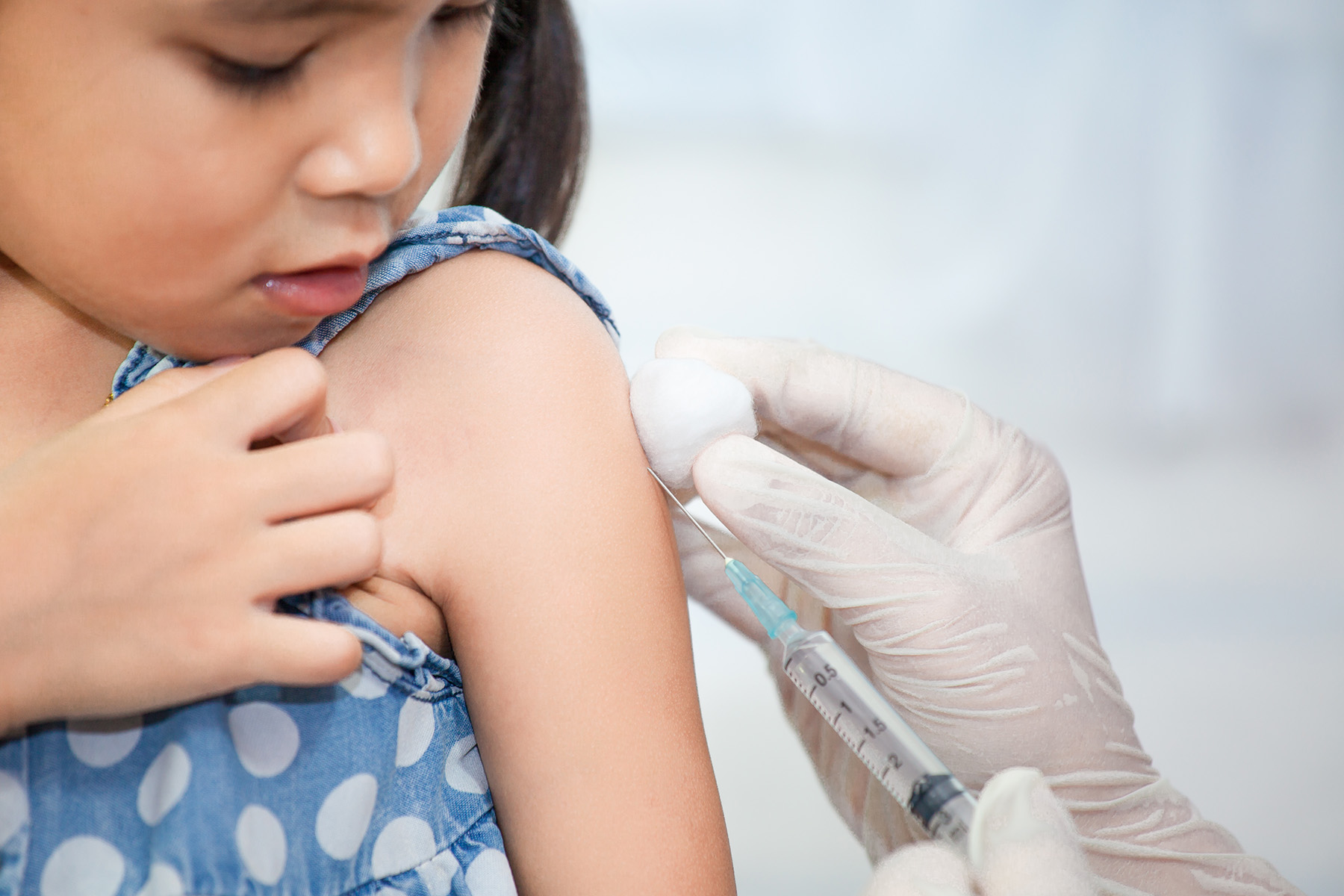As of mid-August, 4,638 cases of measles have been reported in Canada in 2025.
Many thought the disease had been eradicated, but its resurgence has been swift. Between January 1 and April 12 of this year, the country saw a sudden increase in measles cases, surpassing 1,000 confirmed and probable infections—the highest since the disease was declared eliminated in 1998.
“Eliminated” differs from “eradicated” as the former indicates a reduction of total incidence of a disease to zero in a defined geographical area owing to deliberate efforts where continued intervention is required. The latter, however, indicates a permanent global reduction of incidence to zero owing to deliberate efforts where continued intervention is no longer required, for example, smallpox.
As of mid-August, B.C. has 190 confirmed cases and Alberta at 1,731, making Canada one of the top ten countries with the highest number of confirmed cases. Alberta alone has more cases than the entirety of the U.S. combined, likely due to its lower rate of vaccination, which is 71.6 per cent as of 2022. In parts of Alberta, rates get as low as 24 per cent. However, Alberta is not the only concern in Canada, as vaccination rates nationwide have sunk significantly. It would be reasonable to assume that the worst of this outbreak is yet to come.
According to public health officials, the best way to fight measles as a population is immunization. Provinces have released awareness campaigns aimed at encouraging vaccination and countering misinformation. However, as the COVID-19 pandemic proved, this may be harder than it seems.

Populations most vulnerable to measles include, but are not limited to, international travelers, pregnant people, children under 5 years of age, and those with weakened immune systems due to age and/or illnesses affecting immunity.
Back-to-school season is a good time to check your measles vaccination status. Most individuals should have received two childhood doses of either the measles, mumps, and rubella vaccine (MMR) or the quadrivalent measles, mumps, rubella, and varicella vaccine (MMRV). Those who are missing one or both should also consult their health care provider.
In B.C., children are usually given the first dose of a MMR vaccine at 12 months, with the second dose being the MMRV vaccine given at 4 to 6 years. Adults born in 1970 or later should ensure they have received two doses of a measles-containing vaccine. Health officials assume most adults born before 1970 have already had measles and are likely immune from the disease.
Those who are pregnant or have weakened immune systems are not recommended to receive measles-containing vaccines and should consult their health care provider.
With multiple flights per day arriving from Alberta to Vancouver, an airborne disease like measles can spread very quickly, reaching all over the city in a matter of days. And the university neighbourhoods are not insulated from this disease.
With a growing population and incoming students from across the globe arriving this month, the campus community may be especially vulnerable.
SIMON DING IS A CAMPUS RESIDENT WITH A BACHELORS IN PUBLIC HEALTH – GLOBAL HEALTH FROM THE UNIVERSITY OF WASHINGTON, AND MEMBER OF THE NEWSPAPER EDITORIAL COMMITTEE.
